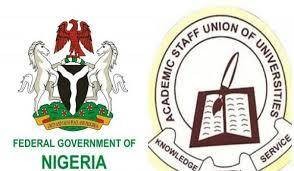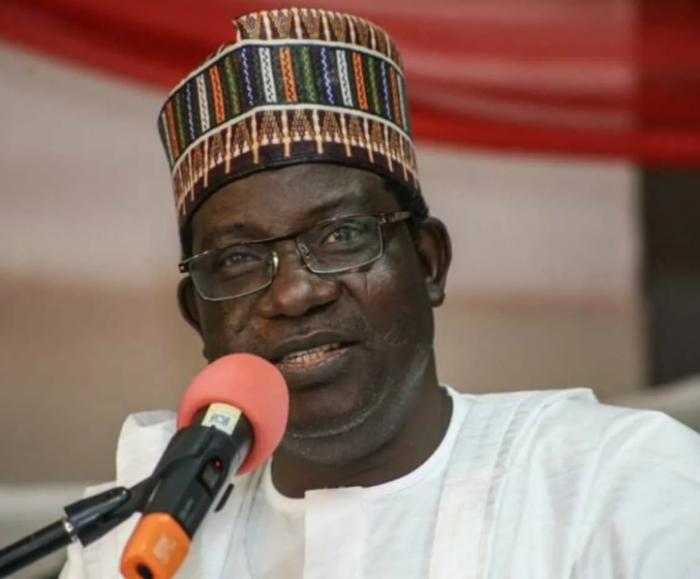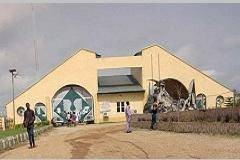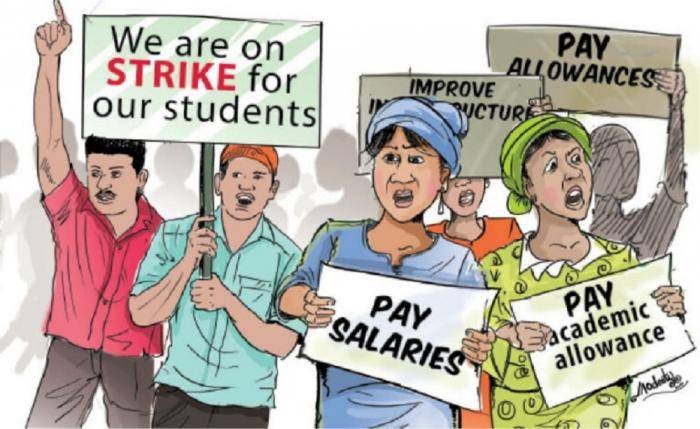
The Minister of Education, Professor Ruqqayatu Rufai on Tuesday exonerated the federal government from blame over the ongoing strike by university lecturers saying the government has made an offer to the lecturers but was yet to receive any response from their union.
The lecturers, members of the Academic Staff Union of Universities (ASUU), started a nationwide strike on Tuesday to press home their demands for the implementation of the 2009 agreements with the Federal Government.
The minister, who was answering questions from journalists in Abuja, did not give any hint on the details of the offer made by the government to the union, but maintained that government was still expecting ASUU’s response.
“They are our colleagues, we meet with them, we discuss with them. There is an offer from government. We expected to hear from them and up till now we are expecting to hear from them,” she said.
Also commenting on the issue, the Executive Secretary of the National Universities Commission, Professor Julius Okojie said that ASUU was supposed to write the government in respect of the offer made to them during a meeting held between them about three weeks ago.
Mr. Okojie said that ASUU had informed representatives of the Federal Government that it would get its response after its National Executive Meeting (NEC).
“We have no official report from them. They should write to us. We have been meeting regularly. We even met on Sunday.
“About three weeks ago, there was an offer made to them by the government. They said that they were going to their NEC, what we expected from them is that they should have come to us and told us what was the result.
“As far as I am concerned, if they are on strike we don’t know. They should write to us,” he said.
Strike grounds universities
Meanwhile, academic activities at the University of Lagos were grounded on Tuesday in compliance with the lecturers strike.
The ASUU President, Isa Faggae, said that the action followed the inability of the Federal Government to implement some of the issues contained in a 2009 agreement it had with the union. He told newsmen in Lagos that the government had also reneged on the Memorandum of Understanding (MoU) it entered into with the union in December 2011.
A correspondent, who was at the University of Lagos to monitor the effect of the strike, reports that there was total compliance as lecturers shunned classes. Few students were seen loitering the campus and discussing the development in small groups.
One of the lecturers who spoke on condition of anonymity said that the strike was comprehensive and total, adding that there was no going back until their demands were met.
“I think I am happy with the development. If that is the only language that government can listen to, then so be it.
“As you can see, we have all complied with the no work directive. We are going to have a congress today, just to strengthen our resolve and remain resilient on the issue.
“And I can assure there will be no academic activity on campus until the issue is resolved,” he said.
Tobi Oguntuashe, a year one student of the Faculty of Environmental Science, said that the strike was unfortunate and coming at the wrong time.
She said that with examinations likely to come up by the first week in August, the strike might lead to a postponement.
“I really do not like what is happening now; I feel government should be more serious and committed to the plight of these lecturers because aside from asking for their rights, they are equally critical to nation building.
“With this strike that has taken effect and for the fact that is total and indefinite, a lot of us might lose focus and also destabilised,” Ms. Oguntuashe said.
Another student, Adeoye Olatiboye, a second year student of the Faculty of Law, also expressed concern over the timing of the strike.
He said that the government should always keep its own side of a bargain and that the strike will take a great toll on academic activities lined up for the semester, especially examination.
He said that with such development on ground, the final year students were going to be the most affected as no one could determine how long it would last.
“I feel government should listen to the lecturers so that they can go back to work.
“These people have been going about their jobs happily for a long time even while waiting for government to do their bid.
“We must learn to show commitment to issues that concern education in this country if truly we intend to be ranked among the world’s top 20 economies,” he said.
At the Lagos State University, Ojo, some students were seen having lectures early in the day but the ASUU chapter later circulated notices creating awareness on the strike after which lecturers complied.
The ASUU chapter of the institution said that it was at the forefront in compliance with the strike.
The Chairman, LASU chapter of the union, Adekunle Idris, said in an interview that the strike was a collective decision and no university was expected to object to the directives of the national body.
“We are resolute to go on with the strike as long as it lasts because we know that the government has a tough skin but we are also ready for them,” he said.
He said that beyond issues involved in the national strike, the LASU chapter had other grievances with the state government over some agreements that had not been implemented.
Mr. Oluwatoki urged opinion leaders and traditional leaders to intervene for the sake of the students, to save decadence in the education sector.
Also the lecturers union at the Tai Solarin University of Education (TASUED), Ijebu-Ode, told its members to stay away from work in support of the national union.
The chapter, after its congress, said the lecturers should stay away from work pending further directive from the national body.
TASUED-ASUU Chairman, Adebayo Akinsanya said the lecturers decided to join the strike due to Federal Government’s failure to adhere to the agreement it had with the union in 2009.
He said that the union was also against the continued politicisation of the educational sector.
Mr. Akinsanya said that the only way to call off the strike was for government to fully implement the 2009 FG-ASUU agreement.
“How can government go into an agreement with the union and four years after, government is still foot-dragging over the issue, not wanting to fulfil the agreement.’’
“For the sake of the innocent students, the Federal Government should implement this agreement so that the strike can be called off, ” Mr. Akinsanya said.
Meanwhile, the National Parent Teacher Association of Nigeria (NAPTAN), has urged the Federal Government to accede to the demands of the striking university lecturers.
Deolu Ogunbajo, the National Publicity Secretary, NAPTAN, said that it was unfortunate that the government was reneging on an agreement it willingly entered into with the union.
Mr. Ogunbajo said that what the lecturers were asking for was not “new and out of place’’ and that it was only logical for government to be more responsive and sincere enough to meet such demands.
“It is unfortunate to have this same issue recurring too often. It is worrisome to see how government is always dragging this same issue with ASUU to the point of allowing them to embark on strike. They must look into the issue and do something urgently in that direction.
“Government must also realise that what the lecturers are agitating for are not just fresh demands; they are things that had been signed years ago.
“We therefore want to plead government on behalf of the striking lecturers, to urgently intervene and do the right thing so that this strike will not take a dimension that we all might live to regret,” he pleaded.
The Academic Staff Union of Polytechnics and the Senior Staff Association of Polytechnics have also been on strike since April.




